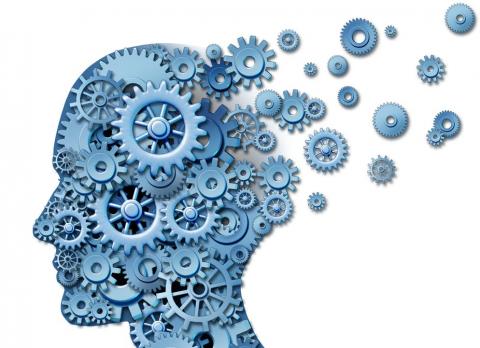+1(209) 348-9544
order@myessayservices.com
+1(209) 348-9544
order@myessayservices.com
![]() Are you in High School, College, Masters, Bachelors or PhD and need assistance with your analytical essay or research paper? All you need is to buy a research paper written by a specialist in your academic field . When you buy an analytical essay from us, we offer you an original, uniquely written & nil plagiarized essay written by a PhD or Masters qualified specialist in your field. MyEssayservices.com is an experienced service with over 9 years experience having delivered over 83,000 essays over the years.
Are you in High School, College, Masters, Bachelors or PhD and need assistance with your analytical essay or research paper? All you need is to buy a research paper written by a specialist in your academic field . When you buy an analytical essay from us, we offer you an original, uniquely written & nil plagiarized essay written by a PhD or Masters qualified specialist in your field. MyEssayservices.com is an experienced service with over 9 years experience having delivered over 83,000 essays over the years.

 The human brain is one of the most complex organs in the life of all mammals. The human brain resembles the brains of the other mammals, but when it comes to the comparison to body size, it is larger than all the others (Craighead, 2013). The size of the human brain in proportion to body size proves that is three times larger than that of a chimpanzee and twice as large as that of a bottlenose dolphin. The brain has several portions with each portion having a specific function that it carries out. The brain works on the division of labor, and this makes it function much more easily since each part is playing its own part.
The human brain is one of the most complex organs in the life of all mammals. The human brain resembles the brains of the other mammals, but when it comes to the comparison to body size, it is larger than all the others (Craighead, 2013). The size of the human brain in proportion to body size proves that is three times larger than that of a chimpanzee and twice as large as that of a bottlenose dolphin. The brain has several portions with each portion having a specific function that it carries out. The brain works on the division of labor, and this makes it function much more easily since each part is playing its own part.
When we talk about cognition, it refers to a number of mental processes that involve the memory, decision making, attention, reasoning, learning and comprehension and problem solving. Cognition is responsible for how one thinks, reasons, concentrates, judge and plans one’s everyday lives. Each and every decision that a human being makes depends on cognition. With old age creeping in, it is very important for one to maintain good cognitive health just like physical health. The decline in cognition and memory as the age advances is very common, and this is not a wonder (Weisberg 2013).
Scientists are trying their best to find ways through which people can keep their brains clean and prevent the cognitive decline like the one experienced in Alzheimer’s disease and other types of dementia.
Post Traumatic Stress Disorder (PTSD), is something that the doctors refer to as an invisible epidemic. Research shows that the disorder is far more widespread than most people think it is. This psychiatric condition occurs after one’s exposure to a scene which is very scaring and happens to freak them out (Vasterling, 2005). If the individual cannot therefore, forget the scenario, this leads to trauma which finally develops to the full condition, Post traumatic stress disorder. Each human being is prone to this disorder as long as what they experience triggers his/her inner most fears. After that, if they do not seek help early enough the trauma catches up with them eventually.
There are a couple of things in life that bring about post traumatic stress disorder. The first is childhood sexual abuse, which in this case childhood refers to anyone below the age of eighteen. This is the most common reason behind post traumatic stress disorder, and it affects men much more than it affects women. The reported rape cases to women surpass by far the molestation cases of men reported. A woman is a common rape target because she is an easier prey and cannot resist compared to the way a man can. Research shows that a very high percentage of women undergo rape, attempted rape or other forms of molestation before they can even turn eighteen.
There are other causes of post traumatic stress disorder and their impact differs according to the cause. The other common reason is the military combat and what the soldiers experience in the battlefield. As a first time soldier who has never experienced the murder of people, it becomes a hard task at first to swallow before one can get used to the situation (Reisberg, 2004). It is therefore, necessary for soldiers to be people of strong heart with a lot of zeal. This is to avoid the case of a soldier letting his emotions get the better part of him in the battlefield. Such a move is very dangerous and can even cost him his life or those of his colleagues.
Another cause of post traumatic stress disorder is a car accident. The scenes of some car accidents are very scary not only to children but to grownups. Take it for example, a child of age nine years old travelling in a family car with her parents and siblings. Unfortunately, their car gets hit off the road by a bus which has lost control and it veers of the road hitting a pole on the other side of the road. The whole family passes away on the spot and the nine year old kid alone survives. The images of seeing her dead family members around her will haunt this small kid for a very long time and eventually lead to post traumatic stress disorder (Craighead, 2013).
 To anyone who has never experienced the brutal death of someone, whether they know them or not, this is a reason to send someone straight into direct post traumatic stress disorder. When done with brutality and mercilessly, it can affect ones brain especially that of a child or even an adult. Though an adult might handle the situation better, it has the same effect on them as it would have on a child. The major problem that comes is how to deal with the trauma, and this is where most people fail. The cognitive function of the memory might also affect the post traumatic stress disorder in some cases.
To anyone who has never experienced the brutal death of someone, whether they know them or not, this is a reason to send someone straight into direct post traumatic stress disorder. When done with brutality and mercilessly, it can affect ones brain especially that of a child or even an adult. Though an adult might handle the situation better, it has the same effect on them as it would have on a child. The major problem that comes is how to deal with the trauma, and this is where most people fail. The cognitive function of the memory might also affect the post traumatic stress disorder in some cases.
The symptoms of post traumatic stress disorder differ, and they can start showing immediately experiencing a traumatizing occurrence or after some time. For a very severe scene that one has experienced, it is the expected that the symptoms will start showing just after a short while and it should not take so long. The disorder cannot be detected until the symptoms persist for about a month, and they have a negative effect on someone’s work or school (Weisberg, 2013). In order for one to be declared to be suffering from post traumatic stress disorder, there is a need for the person to test positive for three important symptoms; reliving symptoms, avoidance and numbing symptoms, and arousal symptoms.
The first set of symptoms happen when the patient starts re-experiencing the scene that caused the trauma trigger. The patient might start seeing things that relate, and in a way revoke the memory of the scene or even start having nightmares that are similar to the scene. The avoidance and numbing systems involve the patient in trying to run away from any factors that may remind him of the reason why they had the trauma in the first place.
At this stage, the patient also feels it is hard to express what they feel and rarely talk to anyone. Even when approached by a psychiatrist, it takes time before they can open up. The last symptom involves the patient having emotional arousal. They tend to always be on the lookout for danger, and getting angered very easily at unnecessary things.
When comparing the elderly, those suffering from Post Traumatic Stress Disorder have proven to have lower cognitive functioning compared to those not suffering from the disorder. This is because if the disorder is not treated early enough, the effects will still be there in old age. For such people their decision making seems to be rather rational and is focused on their fears (Reisberg 2004). They cannot do something that they know will revive the memories of the trauma itself and so happen to be very careful.
Their emotions might also tend to be out of place and it is not a wonder to find out that they get angry so fast. This is because the trauma causes a trigger each and every other time and they act on impulse rather than act normally.
In some cases, the post traumatic stress disorder may affect the cognitive function of memory. In trying to access the reason for the trauma, psychiatrists ask the patient to go back and explain what happened. In this, a patient is posed with a challenge to face their fear and talk about what sunk him into depression and trauma. The use of the cognitive memory can lead to two things: the patient recovering from trauma or them developing post traumatic stress disorder. The outcome depends with the willingness of the patient to fight the situation and the effectiveness of the psychiatrist.
In most cases, most patient fear that if they talk about what happened, it will be like opening up a nearly healed wound to add medication. The main process of fighting the post traumatic disorder is actually talking about it. Once one has opened up about it, it means they are ready to face their fears and face the situation as it is. Once the patient has agreed to talk about it becomes much easier for them to heal and even maybe eventually forget about the scene and erases it completely from their minds. The part of completing forgetting what happened might seem to be hard but once one has come clean about it; the burden is finally lifted (Shiromani, 2009).
The process of healing fully from post dramatic stress disorder is quite a lengthy one and requires one to be patient. Patience is a key factor necessary to be on both sides that are both the patient and the psychiatrist since it is not such an easy task. The most important thing for the patient to do is to agree to open up and talk about their experience. It is more of a challenge where one is asked to face their fears and then is able to fight them. The reviving of the memory of what happened is the first sign of progress and as such should be used to encourage the patient that they can do better.
In conclusion, it is right to say that the post traumatic stress disorder is not on an age-based disorder. It can catch up with anyone despite the age. All there needs to be is the occurrence of a situation that triggers the fear in someone and that will lead to trauma. If the trauma is not well cultivated, it will surely cause the post traumatic disorder. It is however, very important to agree that the condition can be treated if only one is willing. The patient must show the willingness and urge to fight the trauma by talking and revisiting how it happened. If they do not do so, the effects will be adverse, and they will not only affect the patients’ emotions but also his normal cognitive functions.
References
Craighead, W. E., Miklowitz, D. J., & Craighead, L. W. (2013). Psychopathology: History, diagnosis, and empirical foundations.
Vasterling, J. J. (2005). Neuropsychology of PTSD: Biological, cognitive, and clinical perspectives. New York [u.a.: Guilford Press.
Shiromani, P. J., LeDoux, J. E., & Keane, T. M. (2009). Post-traumatic stress disorder: Basic science and clinical practice. New York: Humana Press.
Weisberg, R. W., & Reeves, L. (2013). Cognition: From memory to creativity. Hoboken, N.J: John Wiley & Sons.
Reisberg, D., & Hertel, P. (2004). Memory and emotion. Oxford University Press: New York.
Abstract
This paper addresses a conceptual understanding of Schafer's Stress Management for Wellness theories and how the same can be applied in the life of a person.
Keywords: Stress Management
Stress Management
 Stress is one of the most disruptive forces and can potentially affect the quality of life that a person lives. Our ability to effectively handle and situations that are stressful, therefore, go a long way in enhancing the quality of life that we live. According to Moninger (2017), individuals can inculcate a series of DIY beneficial lifestyle practices that could make the difference between spending colossal amounts of money in hospitals instead of spending quality time with loved ones.
Stress is one of the most disruptive forces and can potentially affect the quality of life that a person lives. Our ability to effectively handle and situations that are stressful, therefore, go a long way in enhancing the quality of life that we live. According to Moninger (2017), individuals can inculcate a series of DIY beneficial lifestyle practices that could make the difference between spending colossal amounts of money in hospitals instead of spending quality time with loved ones.
Meditation – wellness coach Robbie Maller Hartman asserts that meditation may alter some neural pathways in the brain hence making us less susceptible to stress. Research shows that daily meditation reduces one's likelihood to suffer nervous breakdowns from stressful situations and is a practice that can take only 15 minutes (Schafer, 1996).
Deep breathing – Psychologist Judy Tutin recommends deep breathing to counter the harmful effects of stress. It accomplishes this by lowering the heartbeat rate thereby also lowering the blood pressure. This is an activity that requires the individual to focus on his/her breathing for at least five minutes, inhaling through the nose and exhaling via the mouth and simply focusing on the senses (Moninger, 2017).
Reaching out – a person's social network is a valuable tool in stress reduction. Talking to others about our concerns makes us get a new perspective on the challenges we may be going through. When we share our problems with others we create tighter bonds between us and this increases our sense of belonging. Face-to-face interactions promote trust and understanding, and our social networks provide us with the avenues for letting off steam that we may have accumulated from stressful periods (Haugh, 2014).
Reference
Haugh, L. (2014, May 24). Mental Health Tips for Wellness and Stress Management. Liberty Voice, pp. 1-2. Retrieved from http://guardianlv.com/2014/05/mental-health-tips-for-wellness-and-stress...
Moninger, J. (2017). 10 Relaxation Techniques That Zap Stress Fast. Retrieved September 16, 2017, from WebMD: http://www.webmd.com/balance/guide/blissing-out-10-relaxation-techniques...
Schafer, W. (1996). Stress Management for Wellness (3 ed.). New York: Cengage Learning.
Browse More Essay Topics 24/7/365 Support 11+ Yrs in Essay Writing Pay for Quality not Quantity Score that A+ Grade
Affordable Papers
Research Paper for Sale
Cheap Research Papers
Buy Term Papers
Buy Research Paper
Write My Paper
Buy an Essay
Cheap Essay Writer
Write my Essay
Thesis Help
Dissertation Help
Paper Writing Service
Pay for Homework
Pay for Research Paper
Do My Essay for Me
Pay for Essay
College Papers for Sale
Do My Homework for Me
College Essays for Sale
Buy Research Papers Online
Buy College paper
Client: "(Berlin, G.K., CA)"
Topic title:"Leadership shortfalls in Blue Chips"
Discipline: "Economics"
Pages: 5, (APA)
" Awesome, the writer delivered it as required by the professor. They also sent me a plagiarism & grammar report Wow!. I was worried about how the essay would turn up but this is exactly what wanted. Thank you and will be back with a longer essay"
Accounting Research Papers
Business Research Papers
Communication Research Papers
Computer Science Research Papers
Economic Research Papers
Film Studies Research Papers
Finance Research Papers
Geography Research Papers
History Essays
Psychology Research Papers
Political Science Research Papers
Nursing Research Papers
Mathematics Essays
Management Essays
Literature Essays
Law Essays
World Affairs Essays
Technology Essays
Sociology Essays
Science Essays
Religion Essays
+1(209) 348-9544
Terms
Privacy
Sitemap
Frequently Asked Questions
0% Plagiarism Guarantee
Money Back Guarantee
Revision Policy
